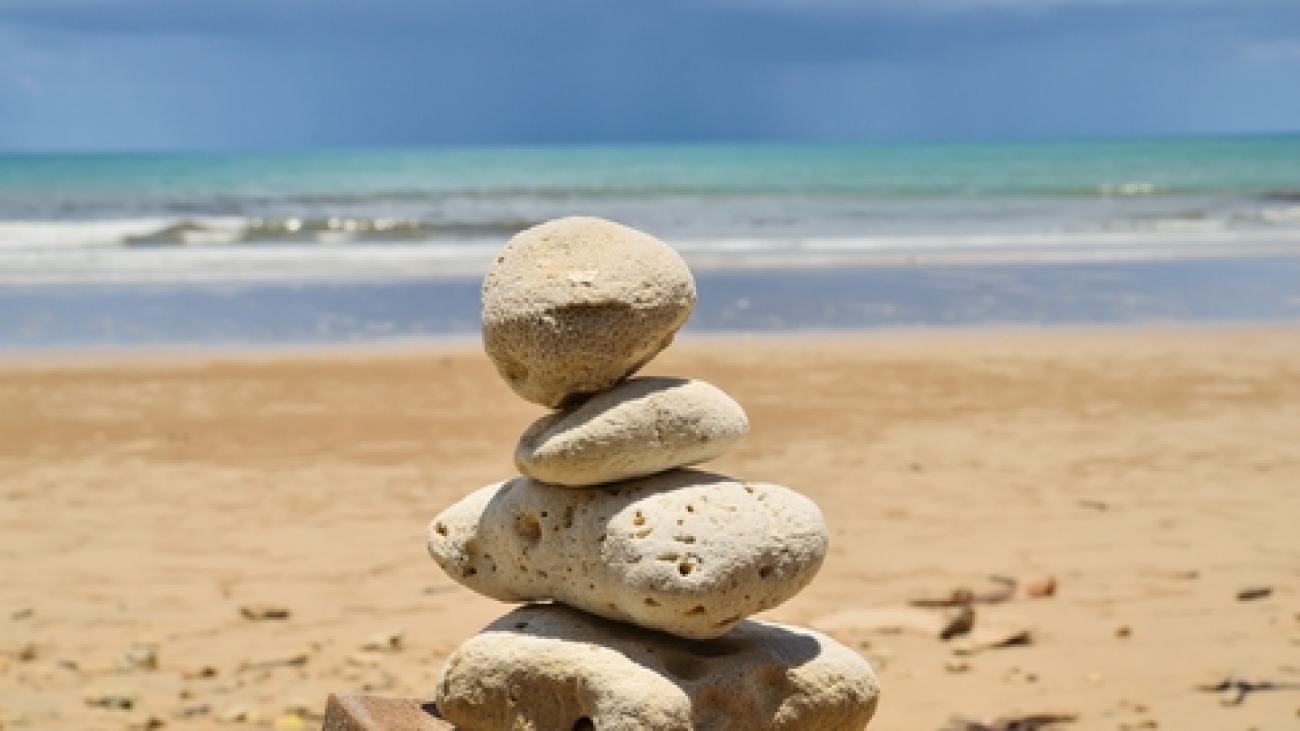Everyone talks about the importance of achieving the elusive work/life balance. But in my opinion, trying to find perfect balance is a pipe dream—a wasted effort. In today’s fast-paced workplace, most of us are urged to do more, faster, and with fewer resources. There seems to be more pressure to be successful—whatever that means—than ever before. While doing the job of two or three people at work, we’re expected to be exemplary parents AND have a fulfilling personal life in which we rear perfect children, enjoy our hobbies, volunteer in the community, and take superb care of our bodies, spirits, and minds. But I maintain that while the quest for balance is a wonderful goal, it’s just not a realistic goal for most folks. Instead, it has become one more “to-do” on an ever-expanding, guilt-inducing list.
What if the balance we’re looking for in our lives was more like the dietary balance that nutritionists recommend? We don’t need to eat all the proper numbers of servings from the five food groups each and every day. The goal is to eat a diet that allows us to get a good balance over the course of a week or month that’s still quite healthy. Translating that to the bigger picture, there are times when we need to work more than usual and other times when we can take more time off. Sometimes we can focus more intently on our hobbies and passions; at other times different priorities take precedence. There may be times when we take really good care of ourselves, and other times when that slips a bit; times where we devote a lot of attention to our family, and other times when there is less energy and daily time to focus on them. And that’s OK; it is as it needs to be. The aim of balance is to live a well-rounded life, to renew and refresh your creative energies on a regular basis so you can achieve your highest potential. Here are some useful tips to help you achieve a realistic balance:
1. Get Mindless. The flip side of work isn’t only family time; it also includes activities that rejuvenate you, whether that’s spa time or a simple hot bath, sports, meditation, fishing, taking a walk, sitting in your yard and watching the birds in the trees or the clouds in the sky. This “mindless” time is critical to restoring your mental prowess, as well as your physical stamina. It also creates space for spontaneous creativity and problem solving. Don’t force it, though. The aim is to relax and enjoy the time fully.
2. Use your calendar. Remember to schedule nonwork activities into your calendar for specific days and times. If you need to contact others to set things up, schedule that into your calendar, too. Once you enter an activity in your calendar, you’ll become committed to it and you’ll be more likely to follow through.
3. Reduce family time stress. Quality time with your loved ones needn’t be complex or difficult to pull off. The most rewarding family activities aren’t necessarily the most formal or expensive ones. There are many ways to spend rewarding, memorable moments with your family and friends. Some ideas include going for a bike ride, sharing an interesting craft project, baking or cooking a meal, going for a hike in a local park, or taking a car ride.
4. Be gentle with yourself. If you start a new habit that soon gets pushed to the side in the onrush of regular life, understand that it’s completely normal. You haven’t failed; you’re just experiencing the same breakthrough bumps everyone else goes through. It’s unrealistic to decide to take up a positive new practice and follow through on it forever. Ask yourself if the new habit is worthwhile, and if it is, work it back into your schedule. If it isn’t satisfying, try something else.
5. Make it sustainable. If it’s not already part of your schedule, creating an expectation that you’ll practice silence, or meditation, or journaling, or some other activity every day just isn’t realistic. Once or twice a week, or even once or twice each month, may be enough for some balance activities, at least to start with. After all, any effort is better than none.
6. Make it yours. Don’t get caught up in trendy balance activities if they don’t fit your tastes. Since cultivating our best selves is one of the reasons we seek balance, spend time doing the things you really love to do. These are, after all, the pursuits that will truly reenergize and gratify you. So if the pursuit of balance is putting you off balance, remember that while it’s a worthy pursuit (in moderation), its purpose is to reduce your stress, not add to it. Understand that on any given day, something probably has to give. Just make sure that you set aside time on another day to devote to the activity you’ve slighted today. Are you having trouble finding a balance between work and other aspects of your life?


